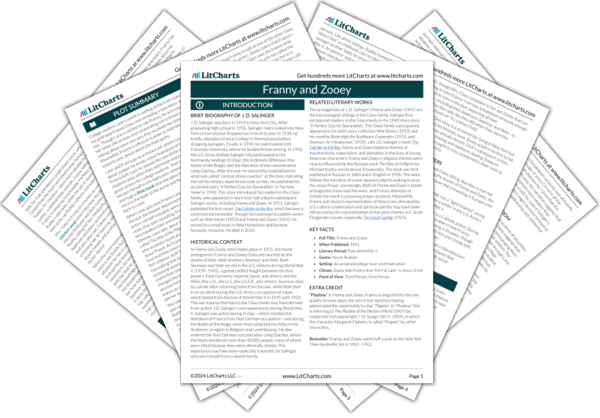When Lane asks Franny to consider that the critics were right, not her, he is asking her to give up her artistic judgment and conform to the opinions of those around her. Moreover, when Lane responds to Franny’s criticism of egotism and bad art with psychoanalytic cliches about her fear of competition, it shows he is too bound to fashionable theories of human behavior to attend to what the individual person in front of him is trying to communicate about herself. In both cases, Franny refuses to conform to Lane’s expectations: she insists on the existence and necessity of artistic “genius,” and she explains that she’s not afraid of competition but its opposite, rejecting social approval and pursuing authenticity at the cost of “be[ing] an absolute nobody” in the eyes of others.
